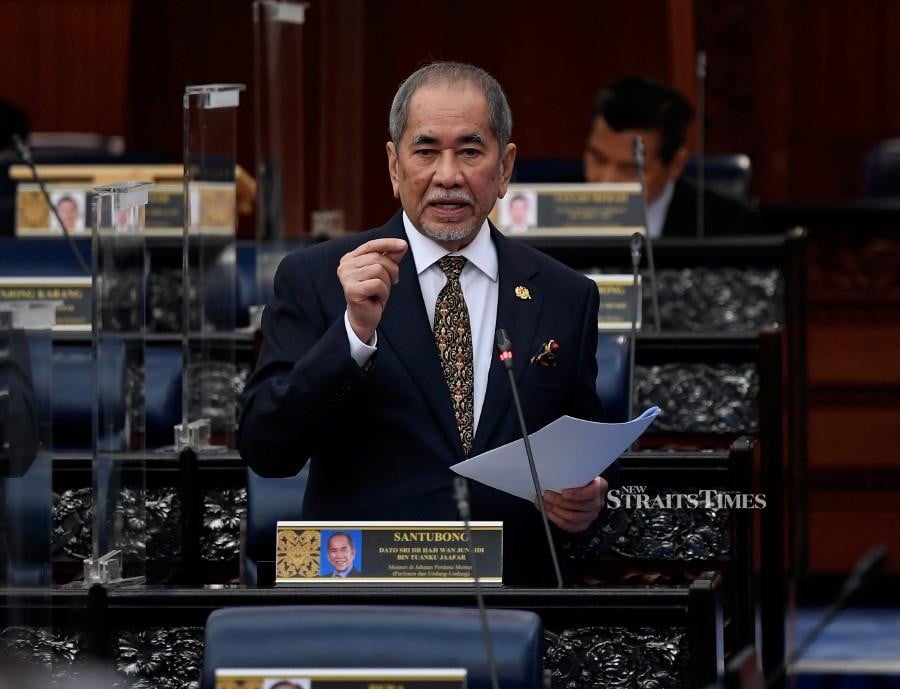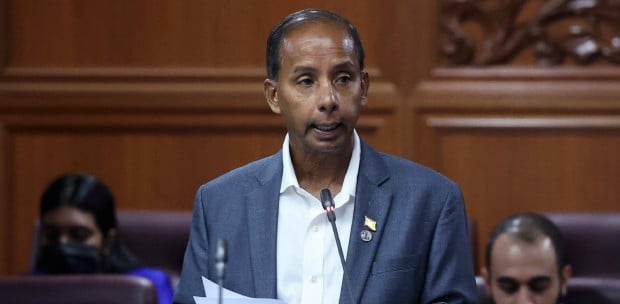KUALA LUMPUR: Amendments to the Whistle-blower Protection Act 2010 (WPA) will, among others, offer enhanced protection to complainants in curbing abuse of power.
Minister in the Prime Minister's Department Datuk Seri Dr Wan Junaidi Tuanku Jaafar said seven issues were identified and addressed in the study by a working committee, with findings and parameters for the proposed amendment to be presented to Cabinet next month.
"This is to ensure proposed amendments to Act 711 enhances protection to whistle-blowers and curbs abuses of power and bribery, especially in high-profile cases," he said in reply to a question from Datuk Seri Anwar Ibrahim (PH-Port Dickson) during the Dewan Rakyat ministerial question time (MQT).
Wan Junaidi said several engagement sessions with stakeholders were held, including with the United Nations Office on Drugs and Crime (UNODC) and Government Accountability Project (GAP).
In addition, he said the committee was established to assess, study and set a parameter based on the amendments and enhancement recommendations from various quarters.
He said committee members comprised personnel from enforcement agencies, state agencies or departments, private companies, government-linked companies, civil society organisations and non-governmental organisations.
Among the issues identified by the committee were the wide and unclear definitions of improper conduct under Section 2 of the Act, as well as inconsistencies between Section 6 of the Act and Section 203A(1) and (2) of Penal Code - where the latter stated that it was an offence to disclose any confidential information or matter which has been obtained while on duty - a contradiction to WPA.
"Act 711 also does not recognise the internal complaint mechanism set up within an organisation, which is not an enforcement agency, as a legitimate channel to expose improper conduct.
"There is no centralised management or single authority responsible in giving protection to whistle-blowers in Malaysia."
He said there was also contradiction between Section 8 and 14 of the Act which covers investigations on detrimental actions.
Such investigations would normally lead to the exposure of the whistle-blower's identity, despite Section 8 stating that it was an offence to expose the identity of the complainant.
According to statistics, a total 73,545 reports were lodged with the enforcement agencies between 2011 and 2021, he said.
"However, only 527 informants (have stepped forward). This shows that there were shortcomings, whether in the implementation of the Act or in its provisions," said Wan Junaidi.
He said the Act was enacted to fight corruption and misconduct by encouraging and facilitating whistle-blowers in exposing improper conduct, while protecting them from detrimental action and ensuring that the disclosed information could be investigated properly.
He said it was also in line with the government's initiative in ratifying the United Nations Conventions Against Corruption (UNCAC) on Sept 20, 2008 where member states had the commitment to protect people who report corrupt-related offences and necessary actions taken to channel such information to the authorities (stated in Articles 33 and 37 of UNCAC).
To date, he said seven enforcement agencies have exercised the Act, namely, police, the Malaysian Anti-Corruption Commission (MACC), Royal Customs Department, Immigration Department, Road Transport Act, Companies Commission of Malaysia (SSM) and Security Commission (SC).
Wan Junaidi also acknowledged the lack of anonymity of the whistle-blowers from enforcement agencies or the alleged wrongdoers of misconduct.
"In enhancing the law, there should be a 'buffer' who will be protecting the whistle-blowers so they remain anonymous to agencies they were complaining about.
"(Under) the existing system, say, if I want to lodge a report, I will have to furnish the details to the police. So, there could be potential leak (on information) of the whistle-blower within the police system," he said in reply to a supplementary question from Anwar.
To address this, he said several options could be adopted, including a 'buffer', such as the respective department director, who would relay the information to the enforcement agency, like the one practised in the United Kingdom and ombudsman in Australia, as well as the restructuring of the Enforcement Agency Integrity Commission (EAIC).
He also agreed that political will was required to ensure the proper execution of the Act that it would achieve the intended objective to fight corruption.






